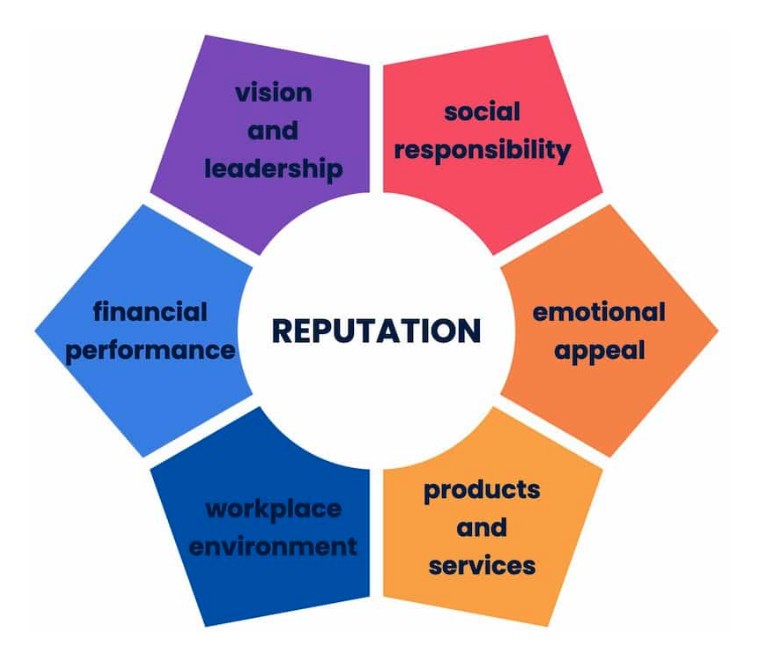Reputation Management Basics: Maintaining Your Digital Photo
Reputation Management Basics: Maintaining Your Digital Photo
Blog Article
From Dilemma to Possibility: Leveraging Online Reputation Management in Times of Adversity
In today's busy and interconnected globe, people and companies face the constant threat of situations and misfortunes that can potentially harm their hard-earned reputation. In this discussion, we will discover the art of leveraging track record management throughout times of crisis, using insights and techniques that can transform a tough situation into a tipping rock for success.
Understanding Reputation Management
Understanding online reputation monitoring is essential for organizations and people looking for to maintain a favorable public photo and mitigate possible damage in times of adversity. Credibility management incorporates the methods and methods used to form, maintain, and shield an individual's or company's track record (Reputation Management). It entails proactively monitoring what is being claimed about the specific or business, both online and offline, and reacting suitably to any destructive or adverse details
In today's electronic age, where details spreads quickly and can have a lasting influence, reputation monitoring has come to be even much more vital. Social media site platforms, on the internet review websites, and information electrical outlets can promptly magnify any kind of negative promotion or criticism, possibly causing substantial harm to a person's or company's track record. By recognizing reputation monitoring, individuals and organizations can properly navigate these difficulties and proactively deal with any issues that might arise.
Trick parts of reputation management consist of monitoring on-line states and reviews, involving with stakeholders or consumers, resolving unfavorable feedback or objection in a professional and prompt manner, and proactively taking care of on-line profiles and content. Additionally, people and organizations should strive to build a solid online reputation by supplying on guarantees, supplying excellent customer care, and engaging in ethical methods.
Recognizing Misfortunes and Dilemma Circumstances

To identify these hardships and dilemma scenarios, organizations require to develop a durable monitoring and early warning system. This involves actively monitoring conventional media, social media platforms, online discussion forums, and other relevant resources for any type of potential threats or negative discussions associated with the company. Reputation Management. By remaining positive and vigilant, organizations can rapidly discover and react to emerging concerns, stopping them from spiraling unmanageable
Furthermore, companies must also carry out normal risk analyses to determine potential susceptabilities and weak points in their operations. This enables them to create backup plans and protocols to deal with dilemmas properly when they do happen. By being prepared and positive in determining misfortunes and situation scenarios, organizations can better secure their online reputation, preserve stakeholder depend on, and eventually transform misfortune into chance.
Building a Crisis Reaction Technique
Establishing a reliable situation action approach is critical for companies to successfully navigate with adversity and protect their reputation. In times of crisis, organizations must be prepared to respond quickly and effectively to reduce the effect on their stakeholders and keep public trust. Building a dilemma response strategy involves a number of crucial actions.
First of all, companies need to develop a crisis monitoring group comprised of check out here vital people from various departments. This team must be responsible for implementing the dilemma and developing feedback plan. They need to have a clear understanding of the organization's worths, goals, and key stakeholders.
Secondly, organizations need to perform a complete risk evaluation to identify potential dilemmas that can occur and evaluate their prospective effect. This involves assessing external and internal aspects that might lead to a situation, such as functional disruptions, monetary issues, or reputational threats.
Following, companies should develop a communication plan that outlines just how they will interact with their stakeholders during a dilemma. This strategy ought to include clear and constant messaging, in addition to networks and systems to get to various target markets.
Furthermore, companies ought to develop protocols for surveillance and reviewing the crisis feedback technique. This includes regularly reviewing and updating the plan to ensure its efficiency and making required adjustments based upon lessons picked up from previous crises.

Using Social Media in Online Reputation Management
Social media has actually become an integral tool for organizations in managing their online reputation during times of hardship. With the surge of social networking systems such as Facebook, Twitter, and Instagram, organizations currently have the chance to directly involve with their stakeholders and address any problems or problems that might arise.
During times of dilemma, social media enables organizations to swiftly share go to website information, offer updates, and interact their side of the tale. By actively taking part in social media discussions, companies can monitor public belief, address misinformation, and show transparency and accountability.
Among the essential advantages of utilizing social media sites in reputation monitoring is the capacity to get to a big audience in real-time - Reputation Management. With social media systems, companies can involve with stakeholders from around the world, regardless of geographical borders. This enables them to not only handle their reputation in your area however also on an international scale
An additional advantage of using social networks is the interactive nature of these systems. Organizations can proactively listen to their target market, respond to their concerns, and demonstrate a readiness to deal with issues. This level of interaction helps construct count on and integrity, which are vital for track record administration.
Nonetheless, it is very important for companies to approach social media with caution. Mistakes or inappropriate reactions can rapidly intensify a dilemma and more damage the company's track record. It is necessary for companies to have a well-defined social media strategy in area, with clear guidelines on just how to deal with crisis scenarios.
Turning Crisis Into Opportunity: Case Studies
Numerous organizations have actually efficiently turned crises into chances by successfully managing their track record and implementing calculated activities. These situation researches highlight the significance of positive credibility monitoring during times of hardship.
One such instance research is the Tylenol dilemma in 1982. By prioritizing consumer safety and security and freely addressing the dilemma, Johnson & Johnson not only reclaimed consumer depend on but likewise established new industry criteria for item security.
An additional notable instance is the Domino's Pizza dilemma in 2009. In reaction, Domino's immediately asked forgiveness and launched a thorough online campaign to resolve the situation.
These instance studies demonstrate the value of swift activity, openness, and effective interaction in turning crises right into chances. By effectively managing their track record and applying critical actions, companies can not only reduce the adverse influences of a crisis but also arise stronger and a lot more resilient.
Final Thought
Leveraging social media as a device in credibility monitoring can additionally enhance companies' capability to attend to dilemmas and communicate with stakeholders. Through strategic and positive credibility monitoring, situations can be transformed right into possibilities for development and enhancement.
By being prepared and positive in recognizing hardships and situation circumstances, organizations can better protect their online reputation, keep stakeholder count on, and ultimately turn misfortune into opportunity.
Developing an efficient situation feedback technique is important for companies to effectively navigate via hardship and protect their track record. Errors or improper reactions can promptly rise a dilemma and further damages the organization's credibility. Leveraging social media as a tool in credibility Website monitoring can even more boost companies' capability to deal with situations and interact with stakeholders. Via tactical and proactive track record administration, situations can be turned into chances for growth and enhancement.
Report this page